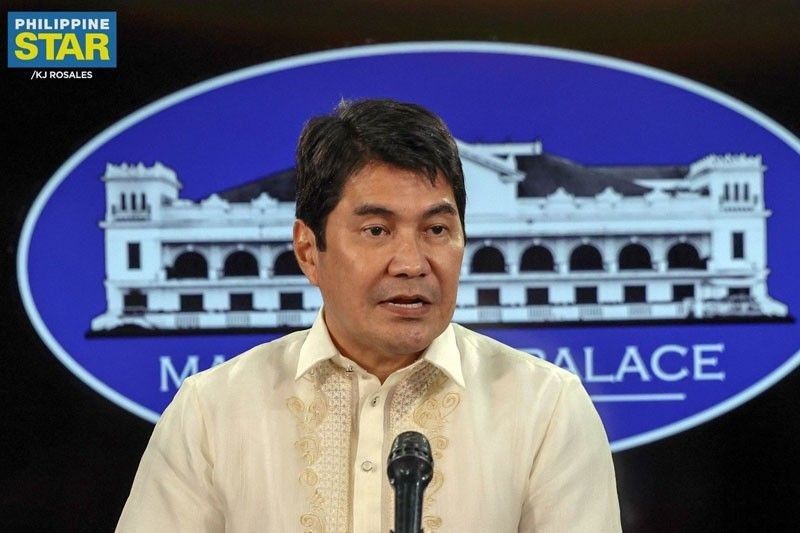Tulfo brothers, Go lead OCTA senatorial survey

MANILA, Philippines — Two brothers of incumbent Sen. Raffy Tulfo are the most preferred candidates for senator in the latest poll conducted by the OCTA Research group.
Survey results released yesterday found ACT-CIS party-list Rep. Erwin Tulfo leading the poll conducted on June 26 to July 1. Some 58 percent said they would vote for Erwin, who is also a former social welfare secretary, if the elections were held during the survey period.
Tied at second spot are another Tulfo, broadcaster Ben, and Sen. Bong Go with 45 percent of support.
They were followed by former Senate president Vicente Sotto III (44 percent), Sen. Pia Cayetano (39 percent), Sen. Bong Revilla (38 percent), Sen. Ronald dela Rosa (36 percent), Sen. Francis Tolentino (34 percent) and former senator Panfilo Lacson (34 percent).
Former president Rodrigo Duterte obtained the support of 33 percent of the respondents, closely followed by former senator Manny Pacquiao with 32 percent.
Also within the statistical chances of winning are Sen. Imee Marcos (28 percent), Sen. Lito Lapid (28 percent), Interior Secretary Benhur Abalos (27 percent), former Manila mayor Isko Moreno (23 percent) and Makati Mayor Abby Binay (23 percent).
Trailing them are Dr. Willie Ong (20 percent), Davao City Mayor Sebastian Duterte (18 percent), former Senate president Franklin Drilon (17 percent) and former senators Francis Pangilinan (17 percent), Gregorio Honasan II (17 percent) and Richard Gordon (15 percent).
Following them are Davao Rep. Paolo Duterte (15 percent), television host Willie Revillame (15 percent), Defense Secretary Gilbert Teodoro (14 percent), Finance Secretary Ralph Recto (14 percent), broadcaster Ted Failon (13 percent) and former interior secretary Mar Roxas (13 percent).
The survey had 1,200 respondents and a margin of error of plus or minus three percent.
Meanwhile, Commission on Elections (Comelec) Chairman George Garcia yesterday said social media influencers hired to endorse or campaign for candidates in next year’s elections may have to pay taxes for the job.
Garcia said the Comelec intends to collaborate with the Bureau of Internal Revenue to collect taxes from social media influencers performing election-related work.
He noted that the media influencers are paid well for endorsing candidates, but not being required to pay taxes.
“This means that there is still an aspect in the campaign that is still not covered by taxation. I believe this wrong,” Garcia said, noting that entertainers are taxed for performing during campaign sorties or endorsing candidates.
Garcia also said the Comelec is looking to issue guidelines by the second week of August to regulate the use of artificial intelligence (AI) and social media during the campaign for the 2025 polls.
The Comelec, he added, wants to release the guidelines for pilot testing before the start of the campaign period as the legality of the directive could be questioned before the courts.
Until the election period starts, Garcia said those running for national and local posts may still use social media since they are not yet considered candidates.
He added that the Comelec plans to forge an agreement with different social media platforms for the intensified implementation of the new guidelines.
Yesterday, the Comelec met with political parties and other stakeholders for consultation on the issuance of guidelines regulating AI and social media during the campaign.
Poll watchdog National Citizens’ Movement for Free Elections (NAMFREL) sought the creation of a task force to monitor the use of AI for the 2025 polls.
“Comelec should implement a reporting and compliance process regulating AI-generated election paraphernalia,” NAMFREL said while encouraging candidates and political parties to self-regulate the use of AI in election activities.
It expressed strong opposition over the Comelec’s plan to ban the use of AI during the campaign for next year’s polls, saying it would curtail technological innovations and inadvertently limit the benefits of AI in enhancing the electoral process.
NAMFREL also suggested requiring candidates and political parties to register their intention to use AI in campaigns and be open to auditing their AI-generated content.
It said that AI-generated content must be subject to review to detect discrimination and prevent biases. Its content must not also infringe on suffrage, digital and privacy rights. – Mayen Jaymalin
- Latest
- Trending






























